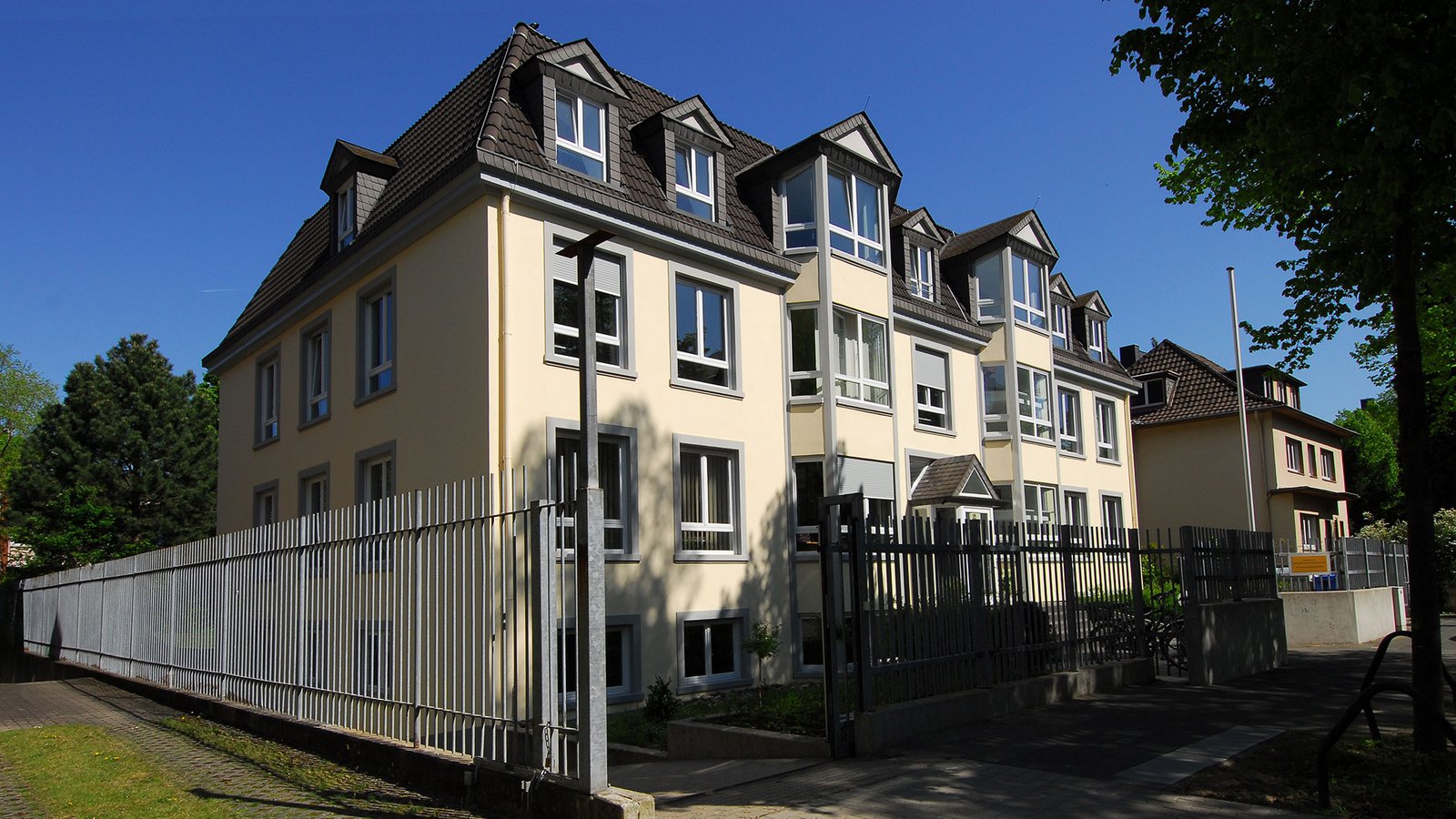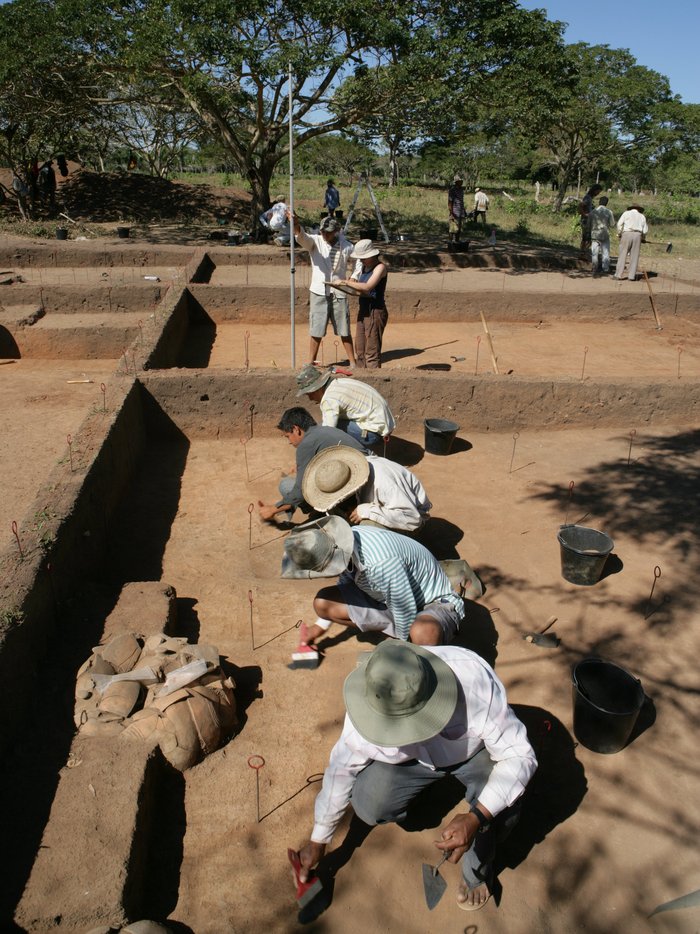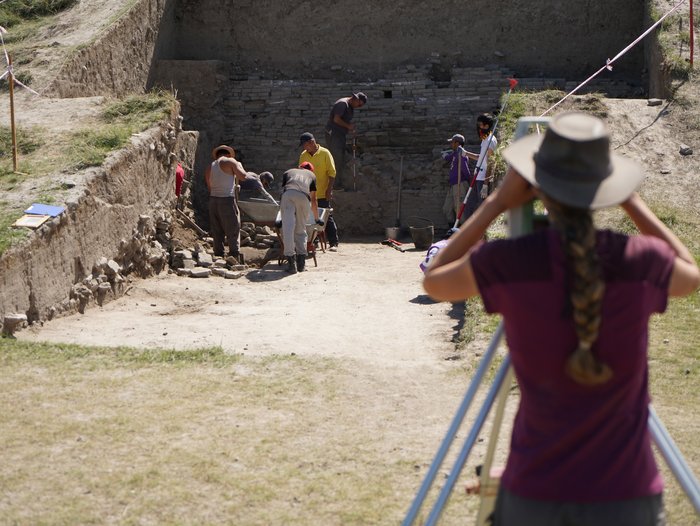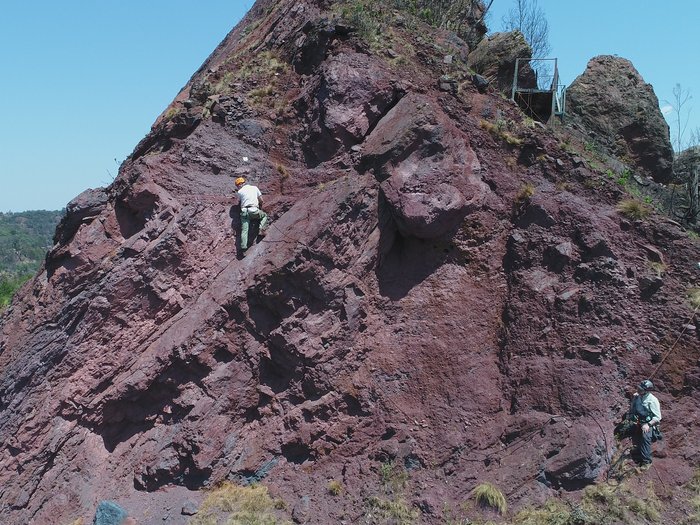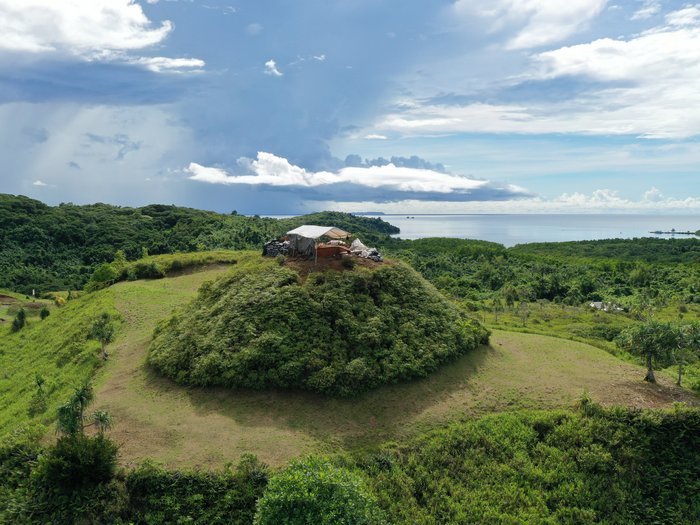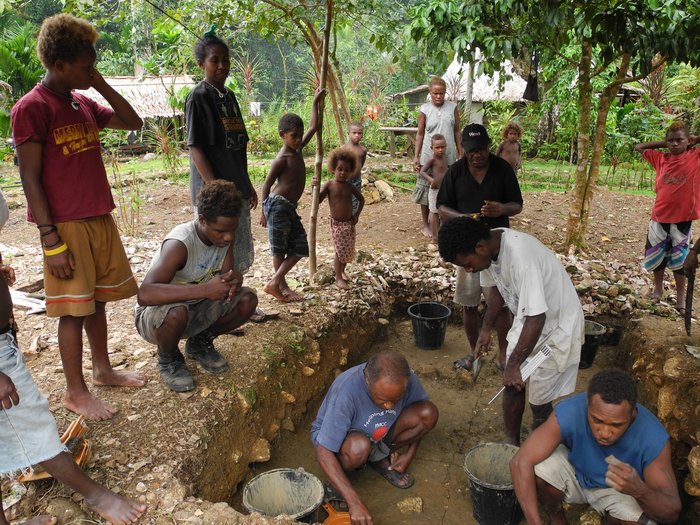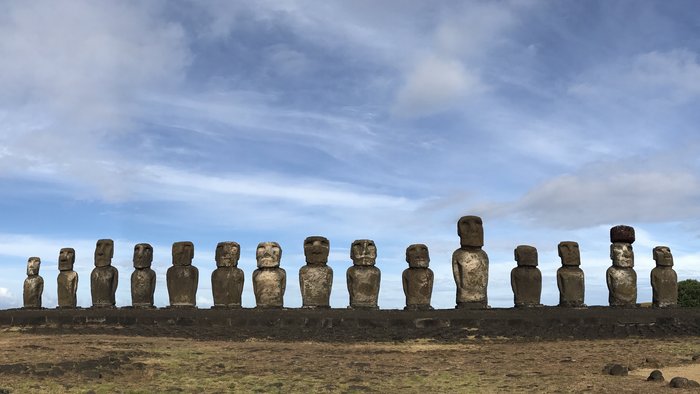Organisation
The KAAK's work in four regions of the world is carried out or supported by more than 20 permanent researchers, infrastructural, technical and administrative staff as well as by additional third-party funded employees. The KAAK offers an extensive research infrastructure with a library, editorial team, archive and guest rooms.
About Us
In its work, the KAAK focuses on regions outside Europe, with a particular focus on Latin America, Africa, Asia and Oceania. Our research covers the entire spectrum of the history of anatomically modern humans from their earliest beginnings in the Middle Palaeolithic (250,000 years before today and earlier) to modern times. We conduct, promote and publish archaeological research in our regional areas. By working in previously rarely studied and extremely diverse regions, we research a wide variety of possible social, cultural and technological developments. However, not only the geographical range of our field work is crucial, but also the general expansion and opening of the perspective of traditional German archaeology. In view of the very different depths of scientific knowledge across large areas, the KAAK is particularly involved in archaeological base research in the various host countries on the one hand and, on the other hand, our researchers work within the DAI on overarching themes that can also have a direct bearing on the present.
How We Are Organised
Our research in four non-European regions of the world (Latin America, Africa, Asia, Oceania) is led by eight scientists who are supported by an extensive research infrastructure. These are supported by eleven additional scientific and technical employees, who primarily cover the areas of surveying and data curation, IT and publications/editorial office, as well as the library, archive and administration. Other scientists are involved in the work of the KAAK through third-party funded projects.
The core of our work unit is an extensive library that brings together collections on the archaeology and older art history of Latin America, Africa and Asia, which are unique in Germany, with a focus on East Asia, South and Central Asia. The KAAK has an extensive archive, which is continuously digitized and made freely accessible to the public. The KAAK also has an in-house editorial team that publishes both a series of monographs (FAAK) and the magazine JoGA.
The KAAK maintains a research office in Ulaanbaatar in Mongolia, which offers living and working opportunities for scientists for longer research stays and also serves as a base station for ongoing DAI research in Mongolia. The purchase of the apartment was possible thanks to generous support from the Theodor Wiegand Gesellschaft e.V.

